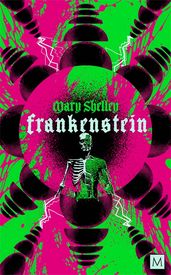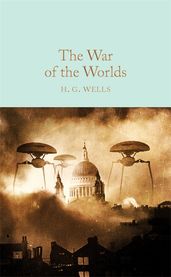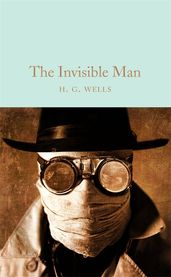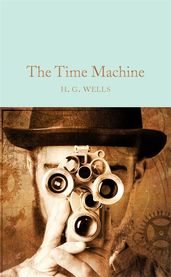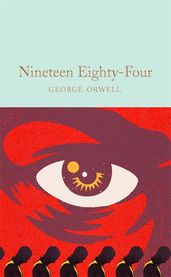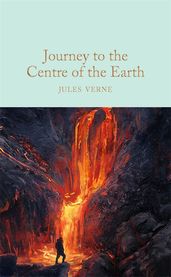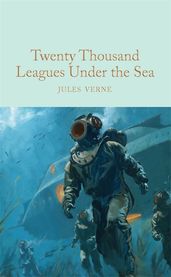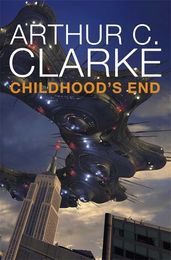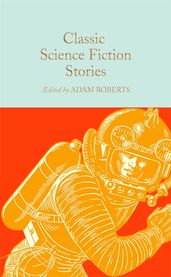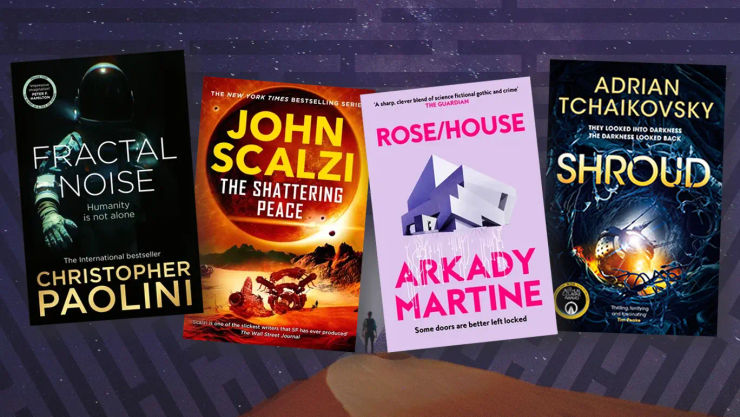Classic sci-fi books everyone should read
The technology may be new, but the genre certainly isn't. Here's our pick of the best classic sci-fi books.
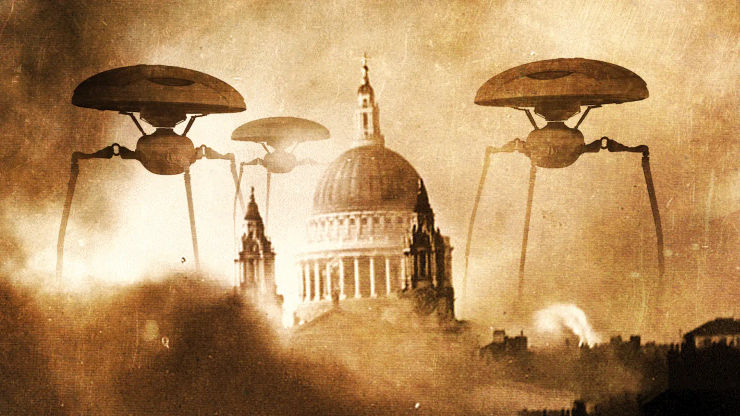
Science fiction imagines the possibilities of real or imagined developments in science and technology to entertaining, thrilling and thought-provoking effect, and it's been doing so since at least the early nineteenth-century. Here we pick out some of our favourite classic sci-fi books.
If you love the classics but are new to science fiction, you'll find some further recommendations in our list of the best sci-fi books for beginners and our guide to science fiction subgenres.
Frankenstein
by Mary Shelley
Taking inspiration from a nightmare, Mary Shelley’s character Dr Frankenstein pushes the boundaries of science with no regard for ethics or consequences. Enter Frankenstein’s monster, a being stitched together from different bodies and artificially shocked into life. Frankenstein’s illusions come crashing down when he decides the creature he has made is ghastly. It escapes, wreaking a path of destruction as society rejects it. Now embedded in our collective imagination, Frankenstein is a masterful story: a clear warning about the cost of scientific advancement and a richly imagined, tragic adventure.
Frankenstein's Monster, Medusa and more
Are these the most misunderstood characters in literature?
Read moreThe War of the Worlds
by H. G. Wells
Humanity is thrown into chaos when Martians attack Earth, causing death and mass destruction in southern England. As the Martians rampage through London, citizens attempt to fight back, hide, or flee the burning wreckage. The narrator, an unnamed man battling to save himself and ensure his wife’s safety, observes the Martians and their advanced technology at dangerously close quarters. Will he, and humanity, survive? This book, published in 1898, is a pioneering portrayal of alien invasion, highlighting the fears we share about future survival, the possibility of extraterrestrial life – and above all, the unknown.
The Invisible Man
by H. G. Wells
A mysterious stranger arrives at an inn. Bizarrely, he keeps his dark goggles, heavy coat and boots on indoors. When innkeeper Mrs Hall catches him off guard, she sees his face is completely bandaged. The man is met with speculation, questions from curious villagers and general dislike. He reveals he is a scientist who experimented with making himself invisible, but cannot reverse it. He uses this power to escape the villagers and indulges in a mad spree of violent attacks. Wells’ visionary tale denounces human greed, highlighting the danger of unchecked scientific experimentation for one’s own benefit.
The Time Machine
by H. G. Wells
When a scientist constructs a brilliant (yet unreliable) time machine which takes him to the future, he is delighted to find himself in a new idyllic version of the world. There he finds the Eloi people, who are beautiful, gentle, and very afraid of the dark. The cause of their fear becomes clear when the scientist encounters the terrifying Morlock people lurking in the dark, who both support and threaten the very existence of the Elois. This brilliantly atmospheric novel transports us to a fascinating imagined future, taking us on a thrilling journey through an almost-unrecognisable London as the scientist desperately searches for a way home to his own time.
Nineteen Eighty-Four
by George Orwell
In Nineteen Eighty-Four, there is no alternative but to love Big Brother, an oppressive leader who heads up a totalitarian regime of mass surveillance. Reality gets reinvented, and Winston, our protagonist, is employed to change facts and delete people from official records. He meets Julia and the two lovers begin talking of resistance, embarking on a dangerous path to freedom with horrific consequences. A prediction of humanity’s future gone wrong, where technology facilitates control, George Orwell’s dystopia is constantly read and referenced today; the adjective ‘Orwellian’ is a synonym for totalitarian repression and deliberate misinformation.
The Yellow Wallpaper & Herland
by Charlotte Perkins Gilman
In Herland, Charlotte Perkins Gilman imagines a utopian society without men. Three male explorers set out to discover where this unique community is located. When they find it, they not only observe the women there, but begin an experiment in which they live alongside them. Will this change the community for the better, or will ruin it beyond recognition? Charlotte Perkins Gilman, most famous for The Yellow Wallpaper, brilliantly interrogates gender roles, motherhood and patriarchal society through an experimental lens of an alternative reality in this classic work of science fiction.
Journey to the Centre of the Earth
by Jules Verne
A professor and his nephew stumble across a cryptic note in an old book. Once deciphered, it tells them a particular Icelandic crater allows access to 'the centre of the earth.' Professor Lidenbrock sets off with his nephew Axel in tow, and they begin a perilous downward journey with their guide Hans. Prehistoric creatures, fossils, and a huge, stormy underground sea all feature here. Published in 1864, Verne’s imaginative early tale of underground adventure has inspired many other writers.
Twenty Thousand Leagues Under the Sea
by Jules Verne
Three adventurers set out to find a sea monster, but in the vast expanse of the Pacific they find not a beast but the Nautilus, the first submarine in the world. Captured by the skipper of the craft, the enigmatic Captain Nemo, the three men find themselves embarking on a quest for vengeance. With a thrilling plot, unforgettable characters, and plenty of fascinating geographical and scientific details that are still credible today, Jules Verne’s astonishing masterpiece represents everything that is great about the genre.
Childhood's End
by Arthur C. Clarke
Childhood's End is a classic of the genre from an author The Times called 'the master of science fiction.' Earth is now a utopia, ruled over by a strange unseen people from outer space. War, cruelty, poverty and racial inequality have been eradicated, so when the rulers finally reveal themselves, their horrific form makes little impression. But then children around the world begin to develop special powers, and the truth about their rulers is finally revealed to the human race . . .
Ursula K L Guin
by Ursula K. Le Guin
'Part of how important she was, was that she was so good that the mainstream couldn’t dismiss SF any more.' wrote author Jo Walton of Ursula K. Le Guin. With over twenty novels and a hundred short stories, the prolific Le Guin wrote across science fiction and fantasy, and this is probably the most famous of the former genre. Two people, until recently strangers, find themselves on a long, tortuous and dangerous journey across the ice. One is an outcast, forced to leave his beloved homeland; the other is fleeing from a different kind of persecution. What they have in common is curiosity, about others and themselves, and an almost unshakeable belief that the world can be a better place.
Brave New World
by Aldous Huxley
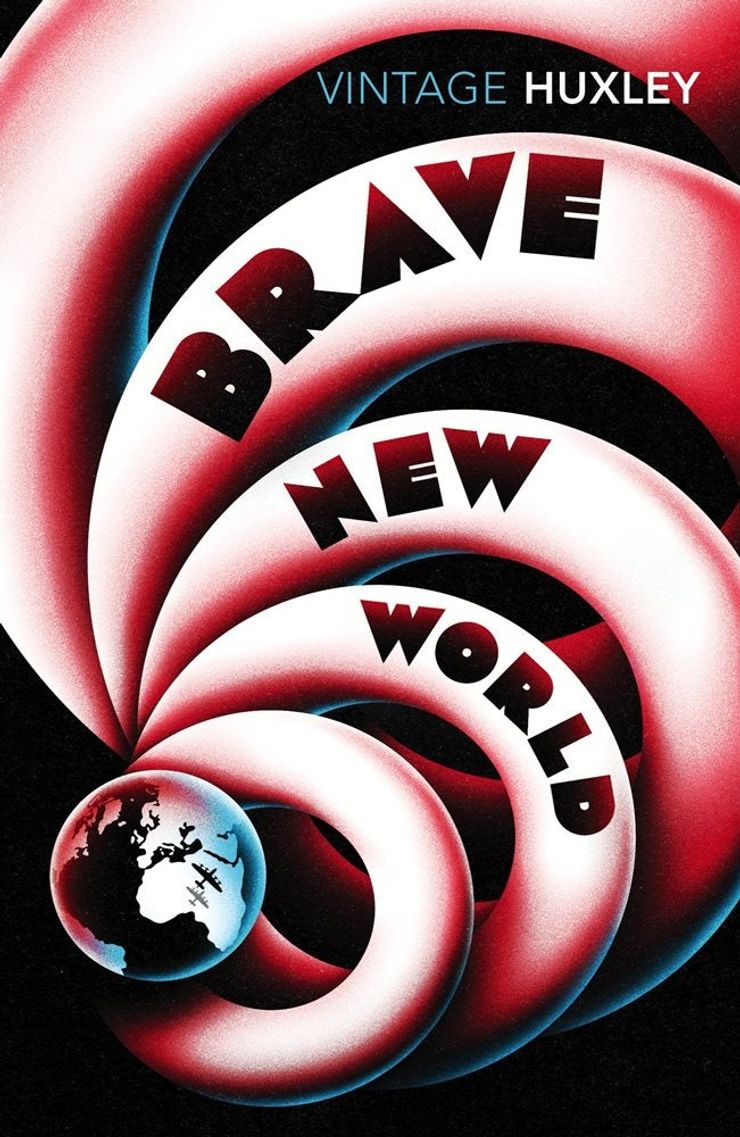
Himself heavily influenced by the science fiction writers, such as H.G. Wells, who went before him, Aldous Huxley presents a future where the World Controllers have created the ideal society in this classic dystopia. All its members are happy consumers, kept docile with a sinister mix of genetic engineering, brainwashing and recreational sex and drugs.
Do Androids Dream of Electric Sheep?
by Philip K. Dick
The Man in the High Castle, A Scanner Darkly, Minority Report, We Can Remember It for You Wholesale. . . such is Philip K. Dick's influence and popularity it's hard to find a Philip K. Dick novel or short story that hasn't been adapted into a blockbuster film or hit TV series. Do Androids Dream of Electric Sheep? is the inspiration behind 1982's Blade Runner, starring Harrison Ford. Earth has been devasted by nuclear war, and we follow bounty hunter Rick Deckard as he searches for renegade replicants he needs to 'retire'.
Kindred
by Octavia Butler
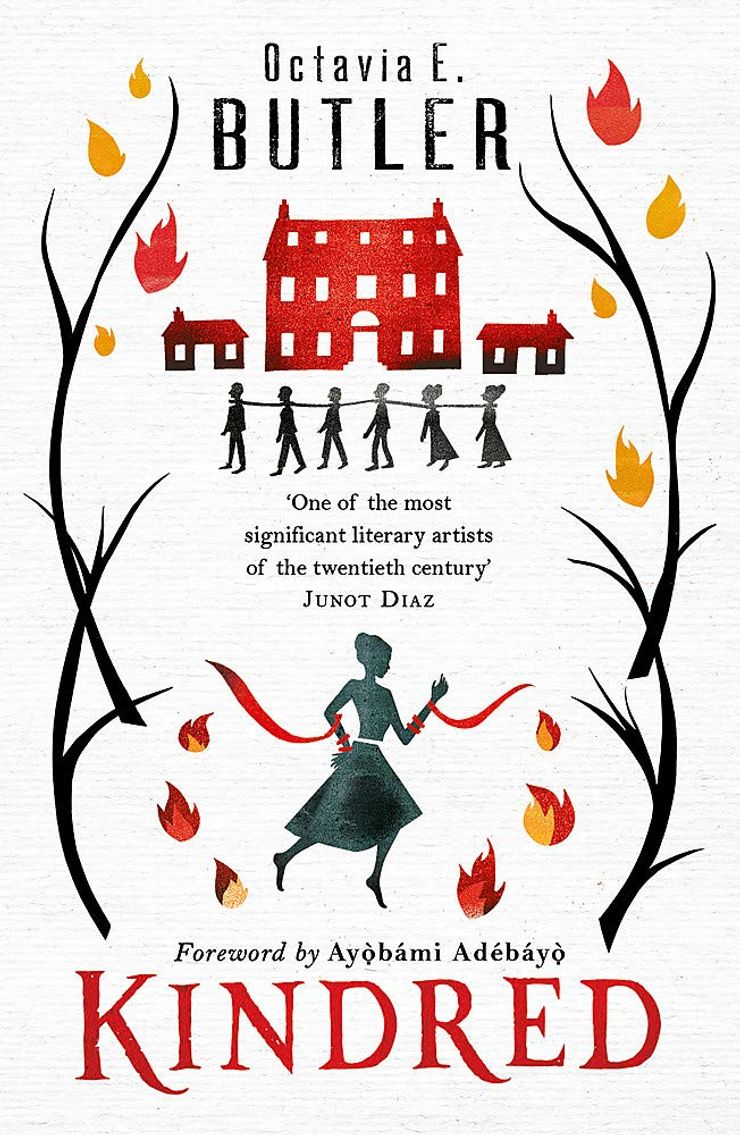
Octavia Butler is considered by many to be the pre-eminent African-American writer of science fiction and this, Kindred, is probably her most famous novel. Forty years since it was first published, its social commentary and raw portrayal of slavery still cuts deeply. Dana, a young African American woman living in LA in 1976, finds herself transported to a pre-Civil War Maryland plantation, where she meets her ancestors. A powerful combination of historical fiction and sci-fi, Kindred forces its readers to think: what would I do if I were in that situation?
Classic Science Fiction Stories
by Adam Roberts
The collection celebrates short stories across the sci-fi genre spanning from the 1750s to the early twentieth century. Alongside some of famous masters of science fiction, this book features lesser-known, yet equally brilliant, writers such as Florence McLandburgh and Ambrose Bierce who made significant contributions to the genre. In ‘Micromegas’, Voltaire tells a story of alien giants visiting Earth; in Mary Shelley’s ‘The Mortal Immortal’, a man experiments with elixirs; and in ‘The Tachypomp’ by Edward Page Mitchell, a mathematician must discover the principle of infinite space to win the hand of his beloved. Selected and introduced by academic and science fiction writer Adam Roberts.
